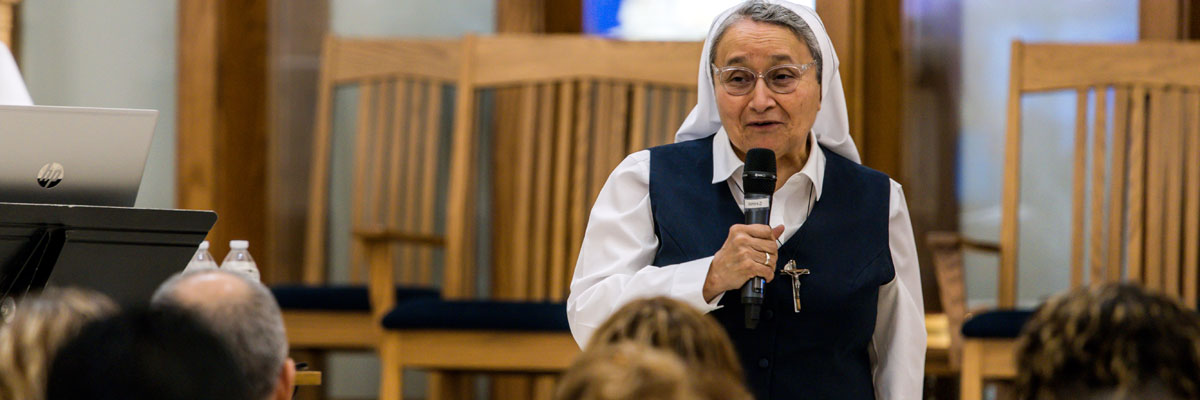Official Website of the
Catholic Diocese of Little Rock
Friday, 22nd Week in Ordinary Time, Year A
Published: September 5, 2014
Bishop Anthony B. Taylor preached the following homily on the feast of Blessed Teresa of Calcutta at Our Lady of Good Counsel Church in Little Rock on Friday, Sept. 5, 2014.
Download MP3 file to your device

Bishop Taylor
Our first reading today begins with a sentence that has a lot to say to us as we gather to celebrate the feast of Blessed Teresa of Calcutta. St. Paul writes, "Thus should one regard us: as servants of Christ and stewards of the mysteries of God." As servant leaders. The words St. Paul uses to describe this service are very interesting and one of them unusual.
The unusual word, which our text renders blandly as "servants", is "huperetes" (ὑπηρέτης) and originally referred to the slave on the lower bank of oar-driven warships and galleys. They had three banks of oarsmen on each side of the boat and a "huperetes" was one of those who rowed on the bottom row. The idea here is that Jesus is the pilot who steers the boat and we are the slaves who pull with all our might as Jesus directs. Literally as "oarsmen of Christ."
The other word is "stewards," in this case "of the mysteries of God." A steward was the administrator of a wealthy estate who was authorized to act in his master's behalf and required to do so according to his master's will. He was in charge of the other servants and made decisions about purchases and the distribution of supplies, but he still remained a servant. The master gave him authority because he found him to be responsible and dependable, and it is ultimately on that which he will be judged.
The idea here is that Jesus is the pilot who steers the boat and we are the slaves who pull with all our might as Jesus directs. Literally as "oarsmen of Christ."
Today we celebrate the feast of Blessed Teresa of Calcutta, whom we know to have been a faithful servant of Christ and a dependable steward of the mysteries of God.
The India in which she received her call in 1946 was like a huge, unwieldy, floundering ship: impoverished by a century of exploitative British colonial rule and trying to find its way on its tumultuous path to independence a year later. The country would be split in two by a civil war leading to the carving out of West and East Pakistan (later Bangladesh), worsening the plight of the millions of destitute people already living on the streets, and then drought and famine and much misery. In the West we heard much about the poor starving children of India.
Mother Teresa knew that India needed Jesus to be its pilot and she discovered that her call was to take her place on the lowest bank of oarsmen and pull with all her might as Jesus directed. Not the top of the three banks of rowers — which would have been plenty arduous as it was — nor even the middle row, but the lowest bank of rowers where the work is hardest and at the same time most necessary.
And having done this, the Lord saw fit to gather around her on that lowest bank other rowers to form the beginning of the Missionaries of Charity, and then he chose Mother Teresa to be the steward entrusted with the administration of this growing part of his household. She was now in charge of the other servants and made decisions about the community. But she still remained his servant, indeed his slave. And as we know, he found her to be responsible and dependable and as such, an inspiration to us all.
But you know, you and I have received the same call that she did — albeit in different circumstances and with different concrete demands. But still, we too are called to be servants of Christ and stewards of the mysteries of God. So let us take our place on that bottom rank of oarsmen too, and pull with all our might as Jesus directs us!




